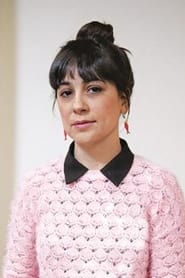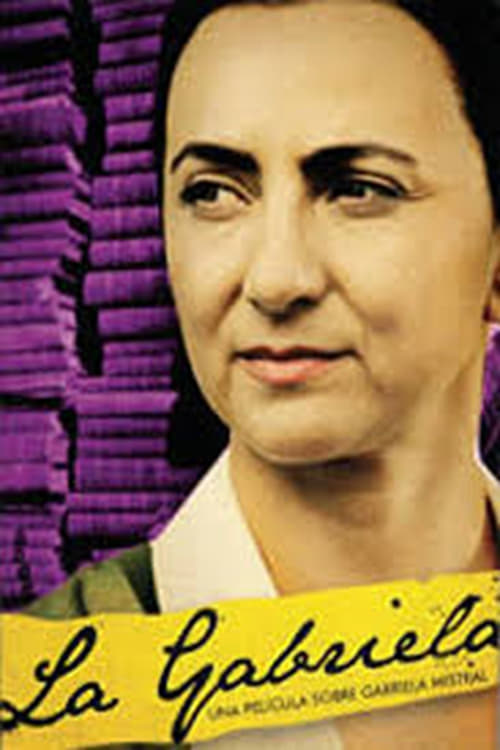
Ask Your Own Question
What is the plot?
The Buenos Aires morning sun filters through the lace curtains of a modest apartment, casting long shadows across the cluttered living room. Diego "Tenso" Polski (Adrián Suar) sits at the kitchen table, sipping his coffee in silence, his eyes fixed on the steam rising from the cup. Across from him, Andrea "Tana" Ferro (Valeria Bertuccelli) stirs her tea with a sharp clink, her face set in a familiar scowl. "This coffee tastes like dishwater," she mutters, pushing her cup away. "And the apartment is too cold. And the radio is too loud. And you're too quiet." Tenso doesn't respond. He's used to this--used to the endless complaints, the sour glances, the way Tana seems to find fault in everything. Their marriage, once full of promise, has become a slow, suffocating routine. He loves her, in a way, but he's trapped, unable to summon the courage to tell her he wants out.
Later that afternoon, Tenso meets his friends at their regular football club, a dusty field tucked between apartment buildings in the heart of the city. Marcelo Xicarte plays Carlos, Tenso's closest confidant, while Luis Herrera is "Negro" and Martín Salazar is Gabriel. They banter about work, women, and the latest football match, but Tenso is distracted. "I can't do it anymore," he says finally, his voice low. "I want to leave her, but I don't know how to say it." Carlos leans forward, a mischievous glint in his eye. "You don't have to tell her. Make her leave you." The idea hangs in the air, absurd and tempting. "How?" Tenso asks. "Find someone to seduce her," Carlos suggests. "Make her want to divorce you."
The next day, Tenso and his friends are at a local bar when they meet "Cuervo" Flores (Gabriel Goity), a man with a reputation as a professional Casanova. Cuervo is all charm and confidence, the kind of man who can walk into a room and make everyone feel like the center of attention. Tenso watches him, fascinated. After a few drinks, he approaches Cuervo. "I need your help," he says, his voice trembling slightly. "I want my wife to fall in love with someone else. I want her to leave me." Cuervo raises an eyebrow, amused. "You want me to seduce your wife?" Tenso nods. "Yes. I'll pay you." Cuervo laughs, but there's a calculating look in his eyes. "It's not impossible," he says. "But it's not cheap."
Tenso agrees to the deal, and the plan is set in motion. To make the seduction easier, Tenso arranges for Tana to get a job at a local radio station. He tells her it's a great opportunity, a chance to do something new. Tana is skeptical, but she agrees, partly out of curiosity and partly because she's tired of staying at home. The radio station is a small, bustling place, filled with the hum of voices and the clatter of equipment. Tana is introduced to Damián Kepelsky (Benjamín Amadeo), the station's host and her new boss. Damián is friendly and encouraging, and Tana is surprised by how much she enjoys the work. She's given a morning talk show where she's free to complain about anything she wants. At first, she's nervous, but as she begins to speak, her complaints take on a new energy. Listeners tune in, drawn to her sharp wit and unfiltered honesty. Her show becomes a hit, and Tana starts to feel a sense of purpose she hasn't felt in years.
Meanwhile, Cuervo begins his pursuit of Tana. He shows up at the radio station, charming Damián and the staff, and quickly finds opportunities to talk to Tana. He compliments her on her show, tells her she's unlike any woman he's ever met. Tana is flattered, but she's not easily won over. Cuervo is persistent, though, and slowly, Tana starts to let her guard down. She begins to see herself in a new light--not just as a wife, but as someone with her own talents and desires. At the same time, Tenso watches from the sidelines, his heart aching as he sees Tana transform. She's more confident, more vibrant, and he finds himself falling in love with her all over again.
One evening, after a particularly successful show, Tana and Damián share a drink at a nearby café. The conversation flows easily, and Tana feels a connection she hasn't felt in a long time. Damián tells her she's special, that she has a gift for making people laugh and think. Tana blushes, her heart racing. She realizes she's attracted to him, and for the first time in years, she feels truly alive.
Back at home, Tenso is consumed by guilt. He knows he's manipulating Tana, but he's also afraid of losing her. He confides in Carlos, who tries to reassure him. "It's for the best," Carlos says. "You'll be free." But Tenso isn't so sure. He watches Tana as she prepares for work, her eyes bright with excitement, and he wonders if he's made a terrible mistake.
Cuervo, meanwhile, is struggling with his own feelings. He's supposed to be a professional, but he finds himself genuinely drawn to Tana. He tells Tenso, "I think I'm falling in love with her." Tenso is stunned. "You're supposed to make her fall in love with you, not the other way around," he says. Cuervo shrugs. "It's not that simple. She's different."
The tension builds as Tana's relationship with Damián deepens. They spend more time together, and Tana begins to see a future for herself beyond her marriage. She tells Tenso she's thinking about leaving him, that she wants to be with Damián. Tenso is devastated, but he knows he can't stop her. He's trapped by his own scheme.
One night, after a heated argument, Tenso finally confesses the truth. "I hired Cuervo to seduce you," he says, his voice breaking. "I wanted you to leave me." Tana stares at him, her eyes wide with shock and anger. "You used me?" she asks. "You set this whole thing up?" Tenso nods, tears streaming down his face. "I didn't know how to tell you I wanted out. I thought this was the only way."
Tana is silent for a long time, then she says, "I'm not leaving you for Cuervo. I'm leaving you for Damián. I've been seduced by him, not by Cuervo." Tenso is stunned. "You're in love with Damián?" Tana nods. "He makes me feel alive. He makes me feel like I matter."
The revelation hits Tenso like a punch to the gut. He's lost control of the situation, and now he's facing the very thing he wanted--divorce. But as he watches Tana pack her bags, he realizes he doesn't want her to go. He's fallen in love with her again, not the woman she was, but the woman she's become.
The next day, Tenso and Tana meet with a lawyer to begin the divorce proceedings. The air is heavy with tension as they sign the papers, each of them trying to hide their emotions. But as they leave the office, Tenso stops Tana. "I don't want this," he says. "I don't want to lose you." Tana looks at him, her eyes filled with tears. "I don't want to lose you either," she says. "I've changed, but I still love you."
They embrace, the years of resentment and unhappiness melting away. They decide to give their marriage another chance, not because they're afraid of being alone, but because they've both grown and changed. Tana continues her work at the radio station, and Tenso supports her, proud of the woman she's become. Cuervo watches from a distance, a bittersweet smile on his face. He's lost Tana, but he's gained something too--a sense of humility and a reminder that love can't be bought or manipulated.
The film ends with Tenso and Tana walking hand in hand through the streets of Buenos Aires, the city alive with the sounds of life and possibility. They've faced their demons, confronted their flaws, and found a way to love each other again. The journey hasn't been easy, but it's been worth it. They've learned that sometimes, the things that drive us apart can also bring us back together, if we're willing to change and grow.
What is the ending?
In the ending of "A Boyfriend for My Wife," the main character, Tino, realizes that his plan to find a boyfriend for his wife, who he believes is too demanding, has backfired. He ends up confronting his feelings and the reality of his relationship. Ultimately, Tino and his wife, who has grown through the experience, find a way to reconnect.
As the film approaches its conclusion, Tino, played by the charismatic actor, is deeply entrenched in his scheme to rid himself of his wife, who he perceives as overly controlling and difficult. He has enlisted the help of a charming and confident man, who he believes will be the perfect match for his wife, Sonia. Tino's plan is to make Sonia fall in love with this new man, thereby freeing himself from the burdens of their marriage.
Scene by scene, the tension escalates. Tino watches as Sonia, portrayed with a mix of vulnerability and strength, begins to enjoy the attention from her new suitor. Initially, Tino feels a sense of relief, believing that he is one step closer to his goal. However, as he observes Sonia's happiness, he starts to grapple with his own feelings of jealousy and regret. The emotional weight of his actions begins to dawn on him, and he realizes that he may have underestimated the depth of their relationship.
In a pivotal moment, Tino confronts the man he hired, expressing his doubts and fears about the consequences of his plan. This confrontation serves as a turning point for Tino, as he begins to understand that his desire to escape his marriage was rooted in his own insecurities rather than Sonia's behavior. The audience witnesses Tino's internal struggle as he reflects on the love he still has for Sonia, despite the challenges they face.
As the climax unfolds, Tino decides to take action. He rushes to find Sonia, who is at a café with her new boyfriend. In a heartfelt scene, Tino interrupts their conversation, pouring out his feelings and admitting his mistakes. He acknowledges that he has taken Sonia for granted and that he wants to work on their marriage rather than abandon it. The emotional intensity of this moment is palpable, as Tino's vulnerability contrasts sharply with his earlier bravado.
Sonia, taken aback by Tino's sudden declaration, is initially hesitant. However, she sees the sincerity in his eyes and the growth he has undergone throughout the ordeal. The tension in the air shifts as Sonia contemplates her own feelings. The audience can sense her internal conflict, torn between the excitement of new love and the history she shares with Tino.
In the final scenes, Tino and Sonia have a candid conversation about their relationship. They discuss their issues openly, acknowledging the need for change and compromise. The film closes on a hopeful note, with Tino and Sonia deciding to give their marriage another chance. They embrace, symbolizing a renewed commitment to each other, and the screen fades to black, leaving the audience with a sense of resolution.
The fate of the main characters is one of growth and reconciliation. Tino learns the importance of communication and appreciation in a relationship, while Sonia gains confidence and clarity about her own desires. Together, they embark on a new chapter, ready to face the challenges of their marriage with a fresh perspective.
Is there a post-credit scene?
In the movie "A Boyfriend for My Wife," there is no post-credit scene. The film concludes with the resolution of the main storyline, focusing on the characters' relationships and emotional growth. The narrative wraps up as the protagonist, Tino, navigates the complexities of his marriage to his wife, who is seeking a more fulfilling connection. The film ends on a note that emphasizes the importance of understanding and communication in relationships, leaving the audience with a sense of closure without any additional scenes after the credits.
What motivates the main character, Tino, to find a boyfriend for his wife?
Tino, played by Diego Peretti, is driven by his frustration with his wife, who is overly demanding and critical. He feels trapped in a marriage that has become increasingly difficult due to her strong personality. His motivation stems from a desire to regain control over his life and to find a way to make his wife happy, believing that if she has a boyfriend, she will be less focused on him.
How does Tino go about finding a suitable boyfriend for his wife, Mia?
Tino enlists the help of a friend, who is a womanizer, to find a man who can charm Mia. He creates a plan to introduce her to various candidates, hoping that one of them will capture her attention and ultimately lead her away from him. This process involves a series of comedic and awkward encounters as Tino navigates the dating world on behalf of his wife.
What is Mia's reaction when she discovers Tino's plan?
When Mia, portrayed by Valeria Bertuccelli, eventually learns about Tino's scheme to find her a boyfriend, she feels betrayed and hurt. Her initial reaction is one of anger and disbelief, as she struggles to understand why Tino would take such drastic measures instead of communicating his feelings directly to her.
How does the relationship between Tino and Mia evolve throughout the film?
As the story progresses, Tino and Mia's relationship undergoes significant changes. Initially marked by tension and misunderstandings, their interactions become more complex as Tino's plan unfolds. Through the process of finding a boyfriend for Mia, both characters begin to confront their own insecurities and desires, leading to moments of vulnerability that ultimately bring them closer together.
What role does the character of the womanizer play in Tino's plan?
The womanizer, played by a charismatic actor, serves as a pivotal character in Tino's plan. He is meant to be the ideal boyfriend for Mia, embodying the traits that Tino believes will attract her. However, as the story unfolds, the womanizer's presence complicates matters, as he inadvertently reveals deeper issues in Tino and Mia's marriage, forcing Tino to confront his own feelings and the reality of his relationship.
Is this family friendly?
"A Boyfriend for My Wife," produced in 2008, is a romantic comedy that contains several elements that may not be considered family-friendly. Here are some potentially objectionable or upsetting aspects:
-
Adult Themes: The film explores themes of marital dissatisfaction and infidelity, which may not be suitable for younger audiences.
-
Mature Language: There are instances of strong language and adult conversations that could be inappropriate for children.
-
Romantic Situations: The film includes scenes that depict romantic relationships and flirtation, which may be uncomfortable for sensitive viewers.
-
Emotional Conflict: Characters experience significant emotional turmoil, including jealousy and insecurity, which could be distressing for some viewers.
-
Physical Comedy: Some scenes involve slapstick humor that may be perceived as aggressive or uncomfortable.
These elements may make the film more suitable for older teens and adults rather than younger children or sensitive viewers.






























